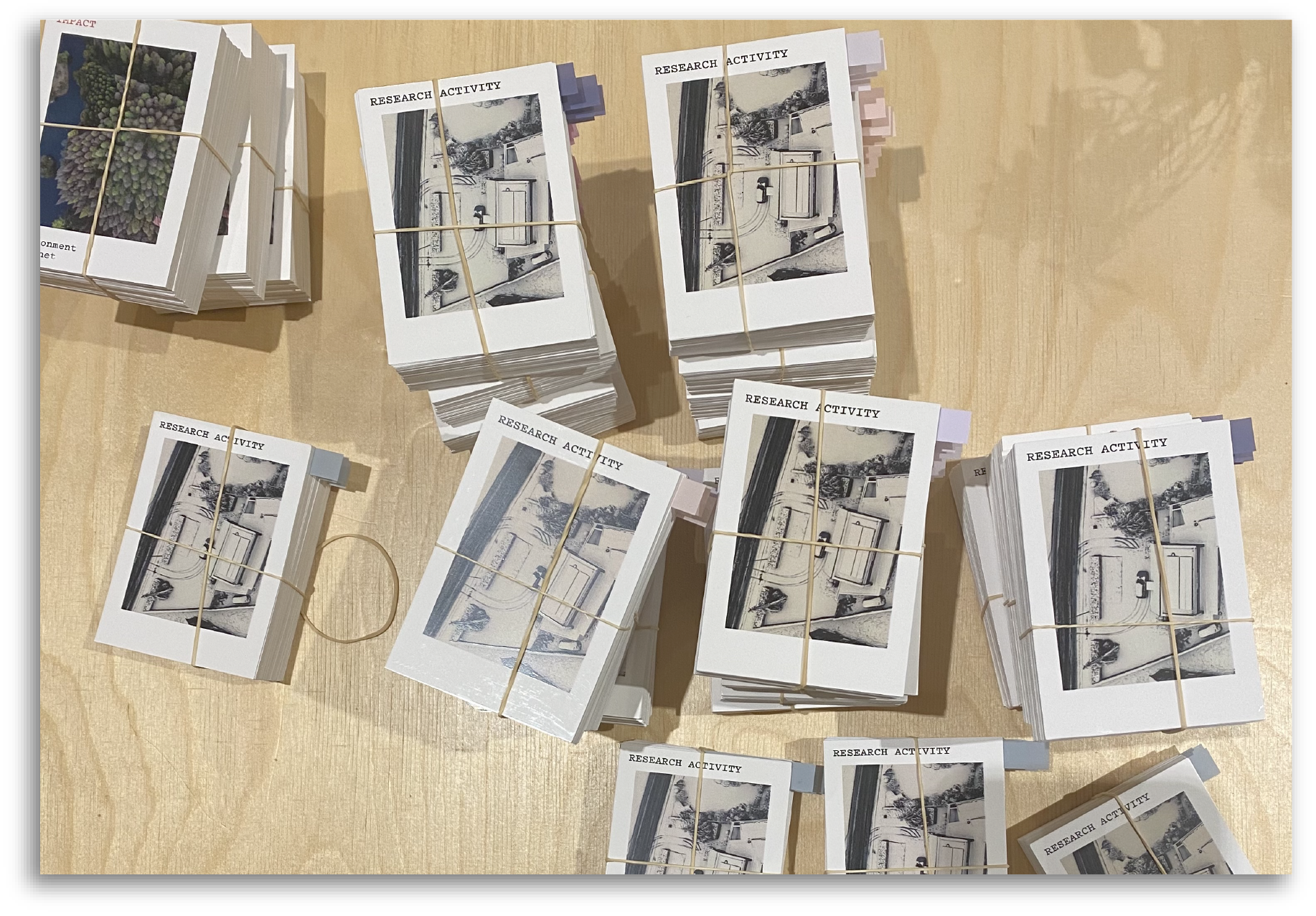Activities
A commitment to making change in the world begins with and depends on the change we ask of ourselves. If we want to increase the chance of our labour leading to positive social, environmental, cultural, economic, technological and geopolitical change we can begin by looking at how and why we do what we do.
More inquisitive than instructional, these activities explore the questions that the social, contextualised, collaborative, systems orientation of impact raises. They aim to seed a change to research impact by making it possible to envisage ‘new normal’ research practices and motivations.
Research on transformative learning says that we must interrogate the scripts that shape how we think and act, and then rewrite those scripts so that new ways of practicing can emerge. The hands-on activities, creative resources and bespoke training respect that any cognitive unsettling (like reading this site) will not, on its own, lead to new research outcomes.These creative activities support the conceptual reframing and practical unlearning critical to adapting and evolving a research practice.
Training
We co-create and develop design workshops focussed on supporting participants in finding their purpose, unlearning limiting habits and envisaging new ways to work. Our sessions range from half-day workshops to 3-day intensives.

We are committed to tailoring workshops to meet the context and the participants. We have designed transformative encounters for university leadership, research labs and project teams, faculties or departments. Please get in touch if you want to discuss how a research impact workshop might support your practice.
︎ CONTACT
︎ CONTACT
Impact Card Deck
This deck of 72 cards teases out many dimensions of a research practice related to impact. They call into question the timescale researchers play with (from months to centuries), explore the values attached to research excellence (from reach to originality), and generate ideas of different translation artefacts or novel research outputs.
There is no one way to use the cards. Download a set and see how they might help shift your practice. We use them in department workshops to create individual research plans, in interdisciplinary teams to surface different values and expertise, in project teams to identify what is missing, or simply to get us thinking about impact before we write grants.

︎Pro tip 1: It can be paralysing to work with all the cards at once. We have found that identifying a couple of categories, like outcomes and outputs, or engagement and translation, can be a more productive way to get started.
︎Pro tip 2: The most interesting conversations come from letting the metaphoric images deepen your questioning. For example, how does the building with scaffolding help us think through different layers of government, or what does the mix tape image tell us about whose voices get heard?
︎Pro tip 2: The most interesting conversations come from letting the metaphoric images deepen your questioning. For example, how does the building with scaffolding help us think through different layers of government, or what does the mix tape image tell us about whose voices get heard?
Practice Shiftwork Activities
We cannot make the changes we want to see in the system without changing how we act in that system. We cannot disentangle the external system shifts required to create more equitable and sustainable futures from the internal intrapersonal shifts required to do more just and ethical research. These shifts are mutually interdependent.
You can put these activities to use to develop a research practice that deepens social impact. Resist believing that reading will lead to a change in practice. It will not. For practices to be transformed one needs more than a cognitive unsettling. What is required is sustained curiosity and action as you imagine, rehearse and develop new research activities and processes.
For a loose plan for how to get started, click here.
This activity helps researchers, individually or in teams, to put aside the institutional and extrinsic calls to do research impact and focus on what personally motivates you in this space. Informed by evidence-based research on the value of intrinsic motivation this diagnostic activity anchors why we do what we do, to ground the move to impact in a sense of purpose, rather than a new strategic plan.